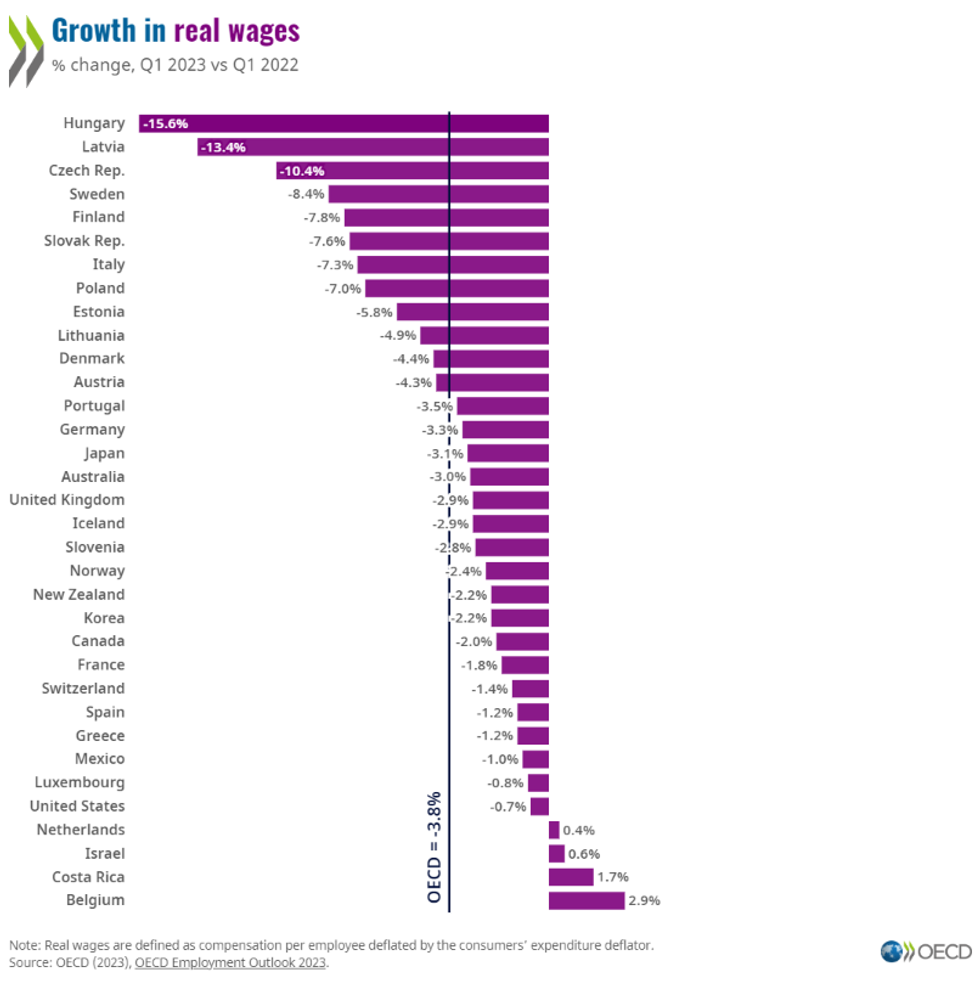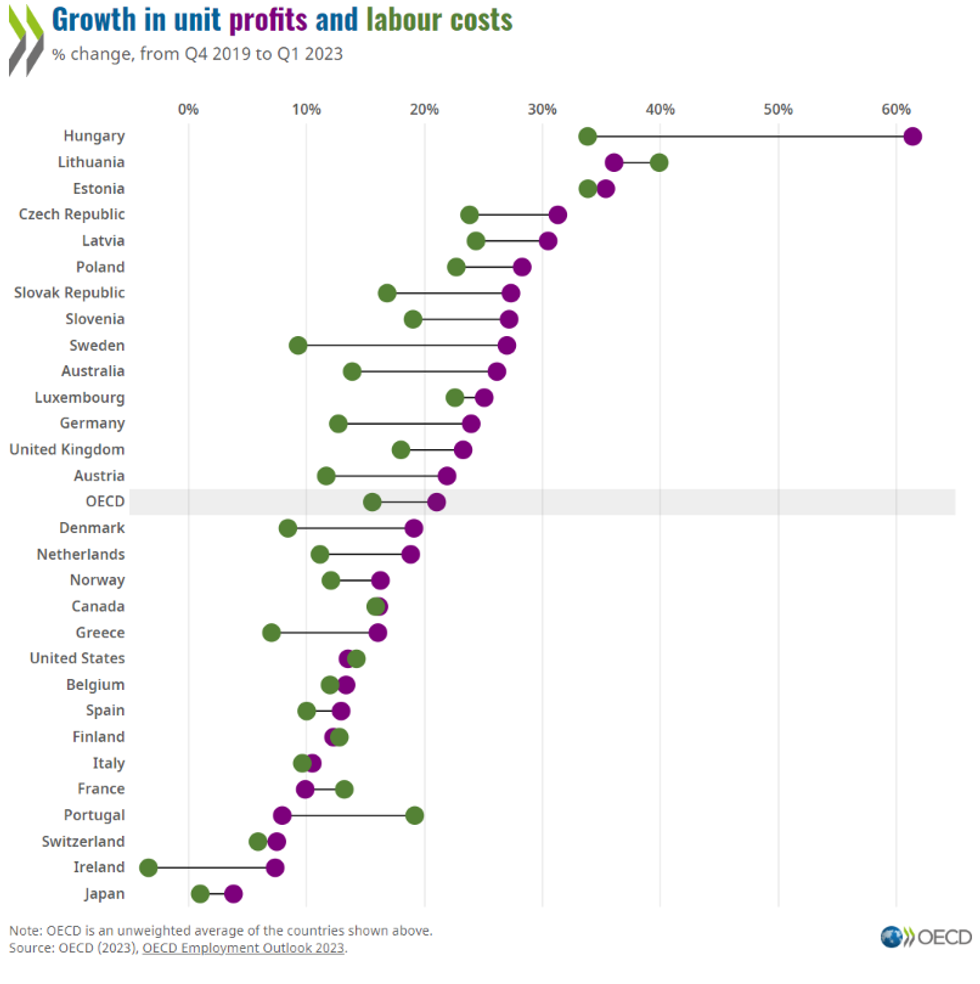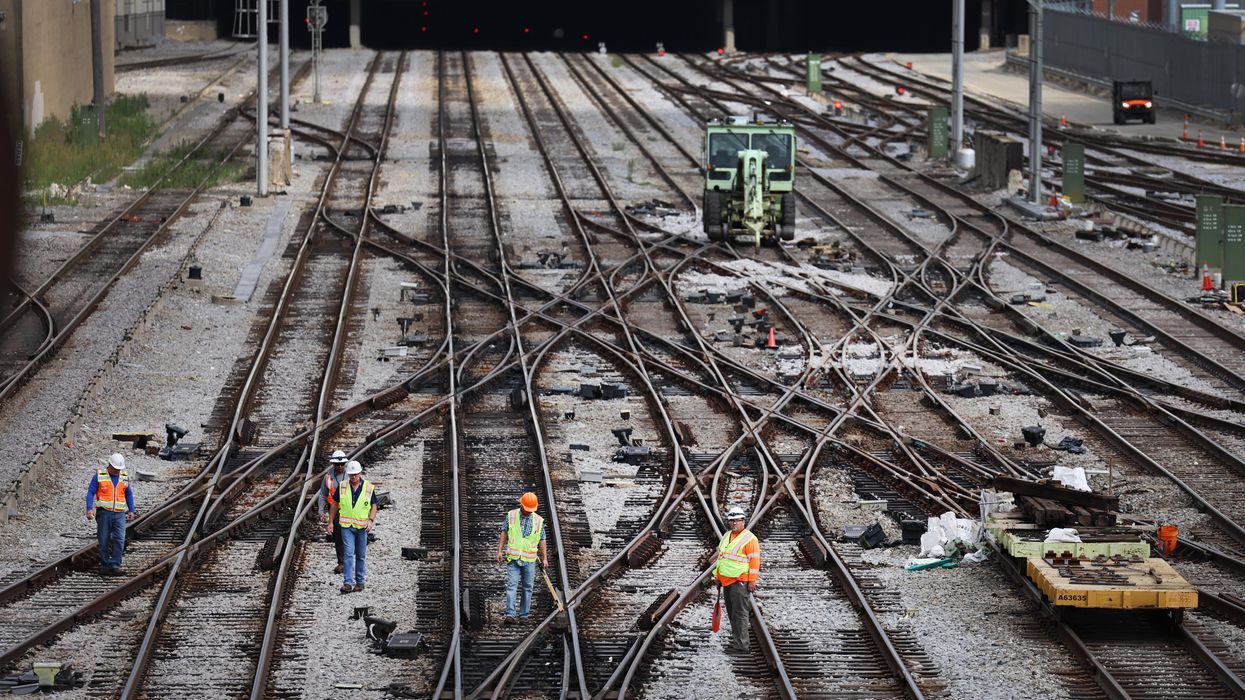"Averting a strike is the responsibility of the employers who refuse to offer ILA members a contract that reflects the dignity and value of their labor," AFL-CIO president Elizabeth H. Shuler wrote in response to the GOP representatives. "The fight for a fair contract for longshoremen is the entire labor movement's fight."
"The public strongly supports these front-line workers and their just demand for economic security."
A potential strike would see between 25,000 and 50,000 workers walk off the job on Tuesday at 36 locations along 14 East and Gulf Coast port authorities, including 10 of the busiest in North America.
The union wants substantial raises to cover the cost of inflation. While West Coast port workers make a base wage of $54.85, their East and Gulf Coast counterparts make only $39.
The ILA is also demanding better healthcare, and a promise not to install automated or semi-automated terminals at the ports. However, negotiations between the union and the U.S. Maritime Alliance (USMX) broke down in June when the ILA said that USMX had begun using an automated gate to allow trucks into ports, in violation of the current contract.
The union has since contacted USMX to discuss wage increases, but the company has not upped its offer.
"My ILA members are not going to accept these insulting offers that are a joke considering the work my ILA longshore workers perform, and the billion-dollar profits the companies make off the backs of their labor," ILA president and lead negotiator Harold J. Daggett said in a statement on Monday.
"The blame for a coast wide strike in a week that will shut down all ports on the Atlantic and Gulf Coasts falls squarely on the shoulders of USMX," Daggett continued.
In their letter, the Republican representatives warned about how the strike "would result in delays and dire impacts to our supply chains, our economy, and the American consumer." They evoked the "supply-chain crisis" during the Covid-19 pandemic that was a major driver of inflation, saying that a one-week strike would cause a one-and-a-half month backlog.
However, Shuler said that the GOP letter made a strike—and its economic consequences—more likely, not less. That's because the leaning on Biden to use his authority to "ensure the continuing flow of goods," suggested Shuler, could reasonably be interpreted as a request for him to file a judicial injunction under the Taft-Hartely Act to stop a strike from taking place.
"History tells us that when companies can count on an injunction against a strike, they do not negotiate in good faith to reach an agreement. By even suggesting a possible injunction, your letter makes a deal less likely and a strike all the more likely," Shuler said.
This is especially the case because the Biden administration toldReuters earlier this month that it had "never invoked Taft-Hartley to break a strike and are not considering doing so now."
"Yet," Shuler told the representatives, "your letter tries to suggest otherwise, giving the companies reason to dig in their heels. Instead of calling for government intervention, a far more productive tact would be to press the companies to meet the workers' very reasonable demands."
Shuler defended the workers' rights to wages that keep pace with living costs as well as job security in a changing technological landscape.
"Like workers in many other industries—from hospitality to healthcare to film and television—they need fair contract provisions that protect their jobs from being eliminated by automation," Shuler said.
She also noted that the port workers had made significant sacrifices to keep the ports moving during the early years of Covid-19.
"Throughout the pandemic, longshore workers never took a day off, risking their health and lives to make sure shelves were stocked and the supply chain remained strong," Shuler wrote. "The public strongly supports these front-line workers and their just demand for economic security."
She continued: "It adds insult to injury to encourage USMX to provoke a strike rather than agree to a fair contract for the workers who kept food on the table and our economy running through the darkest days of the Covid-19 crisis."
The Transportation Trades Department (TTD) of the AFL-CIO also spoke out against government intervention in the negotiations.
"Relying on Taft-Hartley is not a winning strategy and should not be USMX's expected path to resolution," TTD president and scretary Greg Regan and Shari Semelsberger said in a statement. "The Biden-Harris administration has already stated, in their own words, 'We've never invoked Taft-Hartley to break a strike and are not considering doing so now.'"
Regan and Semelsberg added that USMX was to blame for the risk of a strike.
"Let us be clear: The employers, not the workers, have shirked their responsibility and punted labor negotiations to the 11th hour, when the damage to the public and the national supply chain would be most detrimental," they said. "While USMX seeks to cast blame on the frontline workers who move our supply chain, they are at fault."
"Remember this as they seek shelter from the disaster that they created," Regan and Semelsberg concluded.
This piece has been updated with a statement from the Transportation Trades Department of the AFL-CIO.





